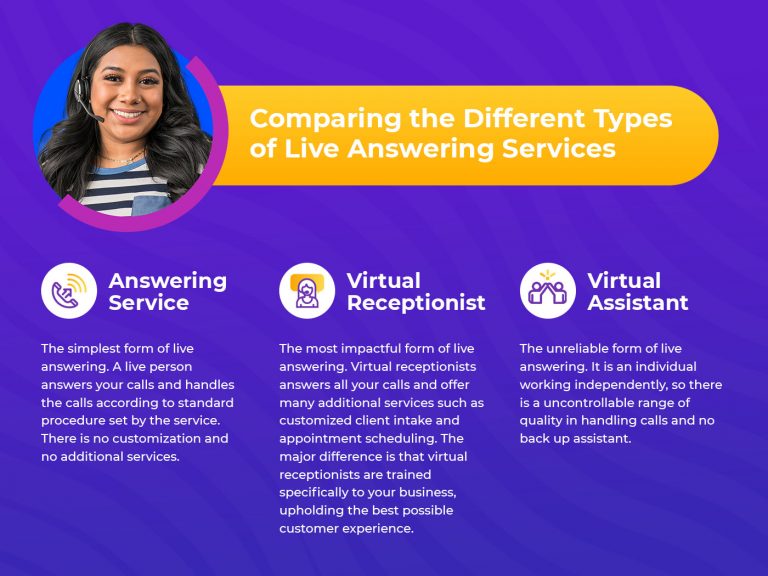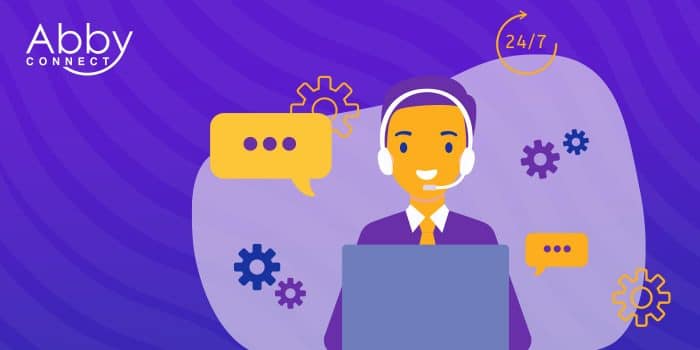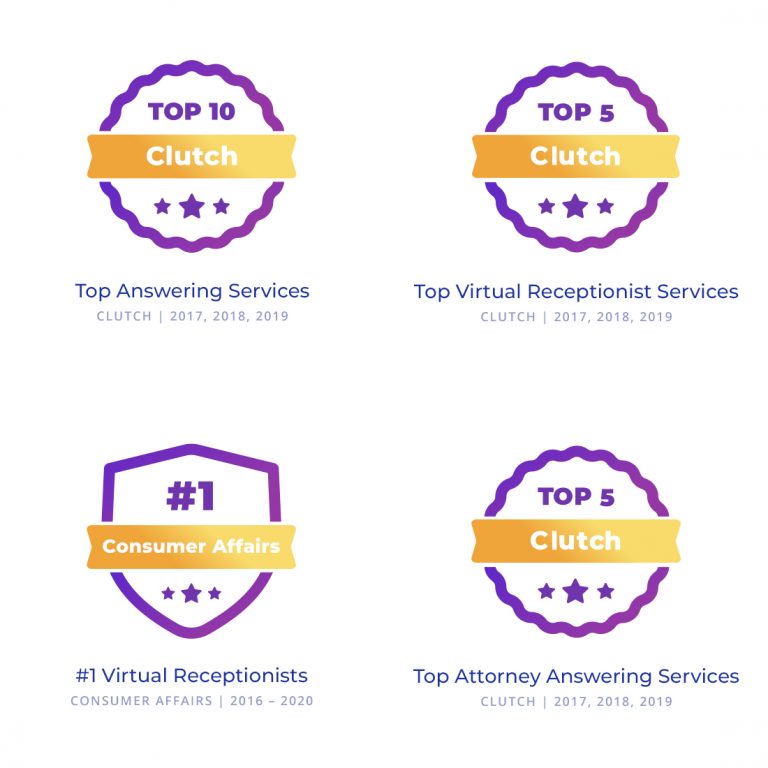“Stay engaged when interacting with the customer. At the moment, they are your most important customer.” — Shep Hyken, International Leading Authority on Customer Service and Experience
Missing customer calls can equate to major losses. Not only will you potentially lose that customer or client, but they will likely conduct business with a competitor instead. Data shows that inbound calls convert 15 times more than the typical website, yet 34% of callers who hang up, will not call that business back.
Whether you’re a lawyer, accountant, or chiropractor, you simply do not have time to answer every call, which is why you need to outsource your call handling to ensure optimal customer service and grow your business.
Two of the most common options are answering services and virtual receptionist services.
Is one better than the other?
To make the best decision for yoursmall business, firm, or office, you must understand how these options differ. Here’s what you need to know.
Are Your Calls Going Unanswered?
If you and your staff are busy running day-to-day operations, it can be challenging to answer every call.
These missed calls are missed opportunities to connect with either new customers/clients or maintain a relationship with pre existing ones.
For example, if you have a law firm, clients may need to get in touch with you outside your regular 9-5 hours. In this case, you or your in-house receptionist doesn’t need to be waiting by the phone or staying up all hours of the night. Instead, you can hire a service that will address your current or prospective client’s questions and concerns. Whether they answer questions for the caller or take a message for you to call them back, taking this extra step can make all the difference to your clients.
What Is an Answering Service?
Many believe that answering services and virtual receptionists are the same thing, and on the surface, they appear to be. Both of these options answer the phone. However, they differ in how they handle calls, which can have a significant effect on your long-term growth strategy, AND the additional services offered.
An answering service is used when businesses are unable to answer calls. An off-site individual will receive inbound calls from a dedicated line that is used for the company they’re working for. When someone calls in, they can inquire about operating hours, obtain general information, leave a message with a live person, and other basic requests.
Answering services for small businesses can also be automated, routing callers based on the numbers they press. Automated answers are offered for common questions and if the caller cannot find the answer they seek, they may have the option to speak to an operator. This ensures that customer calls are not ignored, even if the process is not always ideal for customers who want to speak to someone from the get-go.
Overall, the goal of this service is to have someone on the other end of a customer’s phone call. This issue with answering services are that they are typically cheap and there is always a major issue with low-cost solutions: the quality.
Answering services focus on volume and that is it. They are prepared to answer calls, but not with the customer experience in mind.
Related: An Entrepreneur’s Guide to Answering Systems
What Is a Virtual Receptionist Service?
Live virtual receptionists answer calls. However, they also do much more, offering services that can improve your company’s ability to manage customer calls, helping you maintain a higher level of professionalism and personalization. They act as an extension of your business.
For example, if you own a dental practice, legal office, or accounting firm, your patients and clients want to maintain a person-to-person connection. They do not want to feel like another number, being someone who interacts with an automated system.
They expect more than that, which is exactly what a virtual receptionist will help you achieve — all while saving you time and money.
Think of a virtual receptionist, as someone who performs the same roles as an in-house receptionist, without having to be on-site. Instead of answering calls, scheduling appointments, and taking messages from within your office, they are set up in a secure, remote location. They can also transfer calls to you or others in your office.
Most importantly, this service is customized to fit the needs of you and your business; a team of virtual receptionists is trained and dedicated specifically to your business. Your customer or client will hang up feeling satisfied with the interaction they had, and your business will benefit from that.
Related: What Really is a Virtual Receptionist?

Why Virtual Receptionists Are Serving Businesses Better
Whether you’re busy, understaffed, or have not yet made customer service a priority, a virtual receptionist will make a major impact.
When comparing an answering service and a live virtual receptionist, virtual reception services typically invest more heavily in their team and the technology they offer. This option adds a more comprehensive and personal touch to your customers’ experience.
Just some of the ways a virtual receptionist will enhance business operations include:
- Customized client intake so you get data from every call
- Schedule appointments, booking appointments with tools such as Outlook and Google
- Offering custom business hours, ensuring someone is available 24/7/365
- Voicemail solutions and custom transfer tunes
- A mobile app so you can manage and review all incoming calls and messages
The Key Is Choosing the Right Virtual Receptionist Service
If you have decided that a virtual receptionist is ideal for your business, the next step is to choose a top-rated live receptionist service.
Partnering with someone like Abby Connect, the #1 rated virtual receptionist service by Consumer Affairs for 5 years running, will allow you to benefit from tailored services that meet your unique needs, as well as the needs of your callers. For example, would you benefit from bilingual customer service? Do you want to work with virtual receptionists who are specially trained on your service offerings?
If so, it’s time to consider virtual receptionists who are revolutionizing the small business customer experience.

